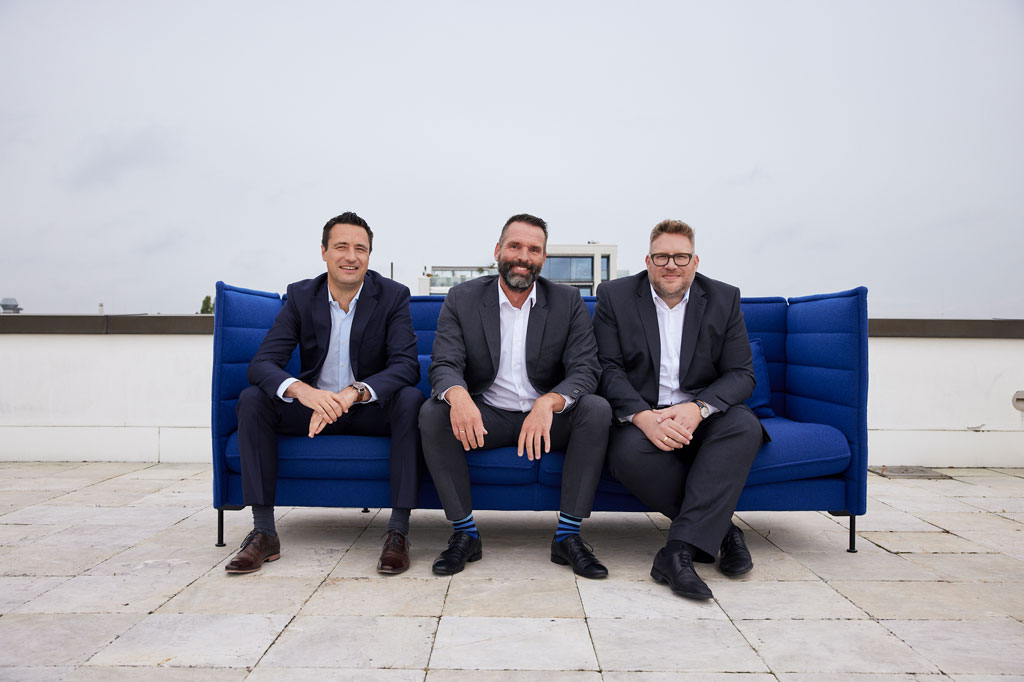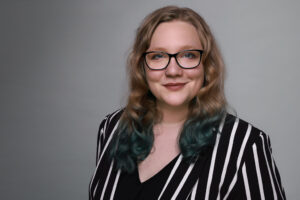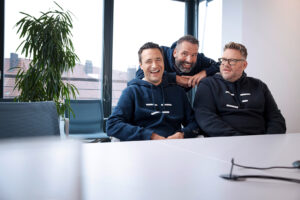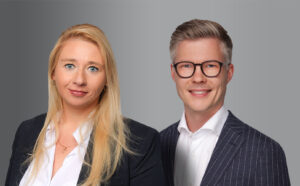
– Company & Culture
"Taking the organization to the next level"
- •
- Kristina Schreiber
As the "next generation" in corporate management, the three of you have been responsible for IKOR's operational fortunes since this year. What exactly is the plan?
Sven Schlünzen: At the interface to our customers, our docks and the office staff, we come into play as a general agent team and extended management: While Thomas Weber - formerly Dock Manager in Dock Assurance - is now responsible for the international and partner business, Sebastian Herrgesell takes care of Delivery and Support. Previously, he was head of Dock Project Excellence. I was previously responsible for Dock Finsure Integration. My new responsibilities now include Business Development and Sales. Because the managing directors Lars Ackermann and Sven Geilich had overall responsibility for IKOR and X1F – IKOR‘s holding company - for some time, they have now literally added more expertise and bandwidth to the IKOR management team.
Staff handovers are considered challenging. What was your experience?
Thomas Weber: While Lars and Sven are transitioning more of their operational responsibilities, we are coming together as executives: We are identifying priorities and coordinating our roles while taking over more of their operational management responsibilities.
What do you want to accomplish through your new roles in the organization?
Sebastian Herrgesell: Our goal is to take the organization to the next level. We also want to address existingfrictions and ambiguities - such as: How we anchor partners and continue the internationalization IKOR started four years ago. We want to stabilize the company as a value organization, shape it, ensure acceptance among our colleagues and expand the operational business. I have been with the company for more than twelve years; and the three of us agree that IKOR must retain its values and culture - in other words, the nucleus ofwhat makes us tick. At the same time, we must continue to grow and develop professionally. This balancing act is not always easy.
Schlünzen: After all, the organization stands for all of our colleagues. We want to take the entire IKOR team to the next level.
That sounds like changes in the organization. How do you intend to achieve that?
What does this change mean in terms of technical content?
Schlünzen: Professionally, we are targeting the entire integration service offering for insurance companies, financial institutions and the public sector. We are initially expanding the offering to include new partnerships and are continuing our internationalization. This also has an impact on project delivery; after all, these topics affect all IKORians: Internal sales, our specialist departments and ultimately our customers.
Weber: That also means getting out of your comfort zone. My new range of work has become much broader with topics that I previously had less to do with as a former dock manager. For example, I'm now learning a lot about the funding business.
And what does the change mean culturally - especially because IKOR has grown massively in recent years?
Weber: Culturally, we are still IKOR - no matter at which location or department our colleagues live and work. Our culture has been under enormous strain throughout the recent pandemic. Even our new IKORians, for some time, could only see each other - and we them - via video chat. In addition, during this time we had few opportunities to meet in person with our IKOR colleagues based in the UK, Poland and Serbia. Our summer party 2022 was a successful reunion. In any case, our colleagues showed a lot of pent-up demand for fellowship.
Nevertheless, due to the disproportionate growth in business, sales, and employees in recent years, IKOR also felt growing pains ...
Weber: That's right. It was difficult, especially during the "hot" Corona period, to practice our culture across countries and divisions within the overall organization. While we grew massively through 2021, 2022 - a year with planned moderate head count growth - should herald a phase in which we can start to heal IKOR's growing pains: by making presence possible again. By having our people return to the offices again conspicuously often and with pleasure. In any case, I see many signs of team spirit. This shows that we are "only" growing together again, but that we don't have to completely reinvent ourselves.
Schlünzen: I feel the same way. Working with my colleagues gives me a lot of energy. I'm happy to receive feedback - both praise and criticism. However, it also hits me personally hard when criticism against colleagues is voiced anonymously and not personally, instead of critics engaging in direct dialog.
Herrgesell: That is certainly a side effect of the company's growth. However, our open-door policy and learning culture allows us - and this is a great wish of mine - to have open discussions and also to express criticism directly. With this understanding, we promote our "One IKOR" value, i.e., the understanding of being united in one culture, of being allowed to learn, of cultivating our values, and of always developing ourselves and our market offerings.
* Sebastian Herrgesell, Sven Schlünzen and Thomas Weber became the managing directors of IKOR in January 2023.





